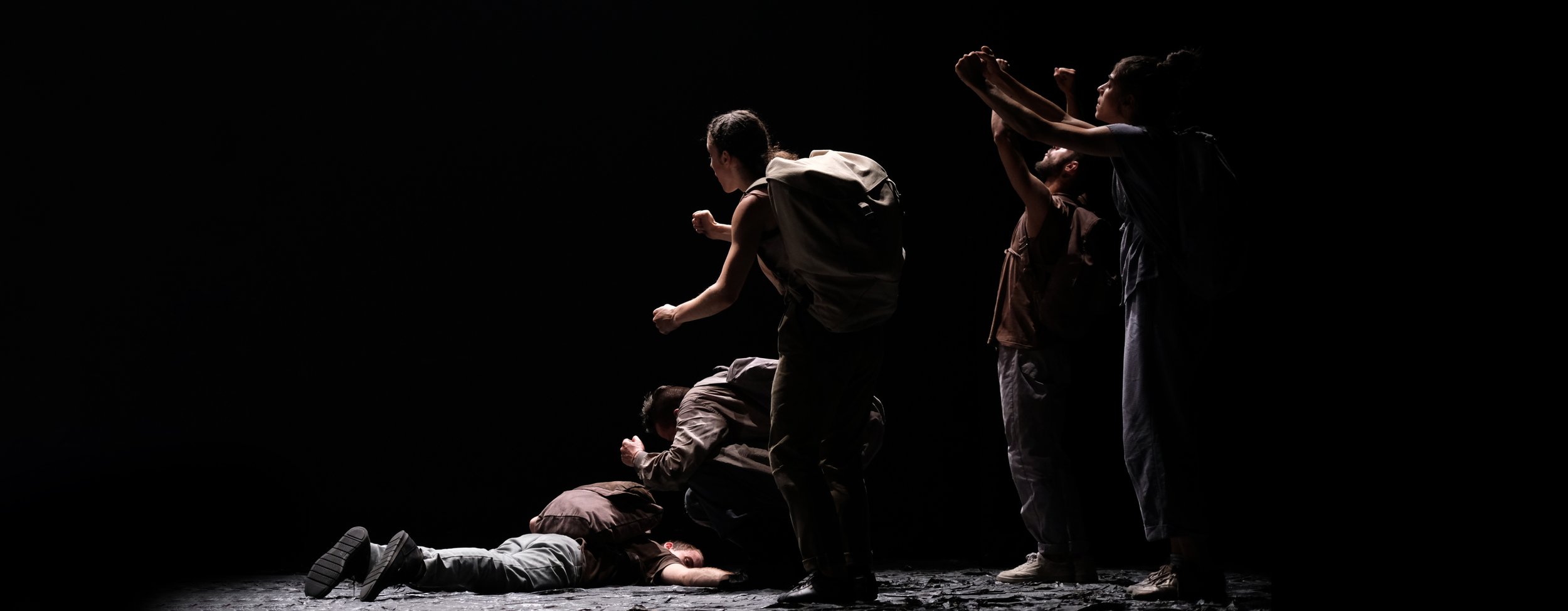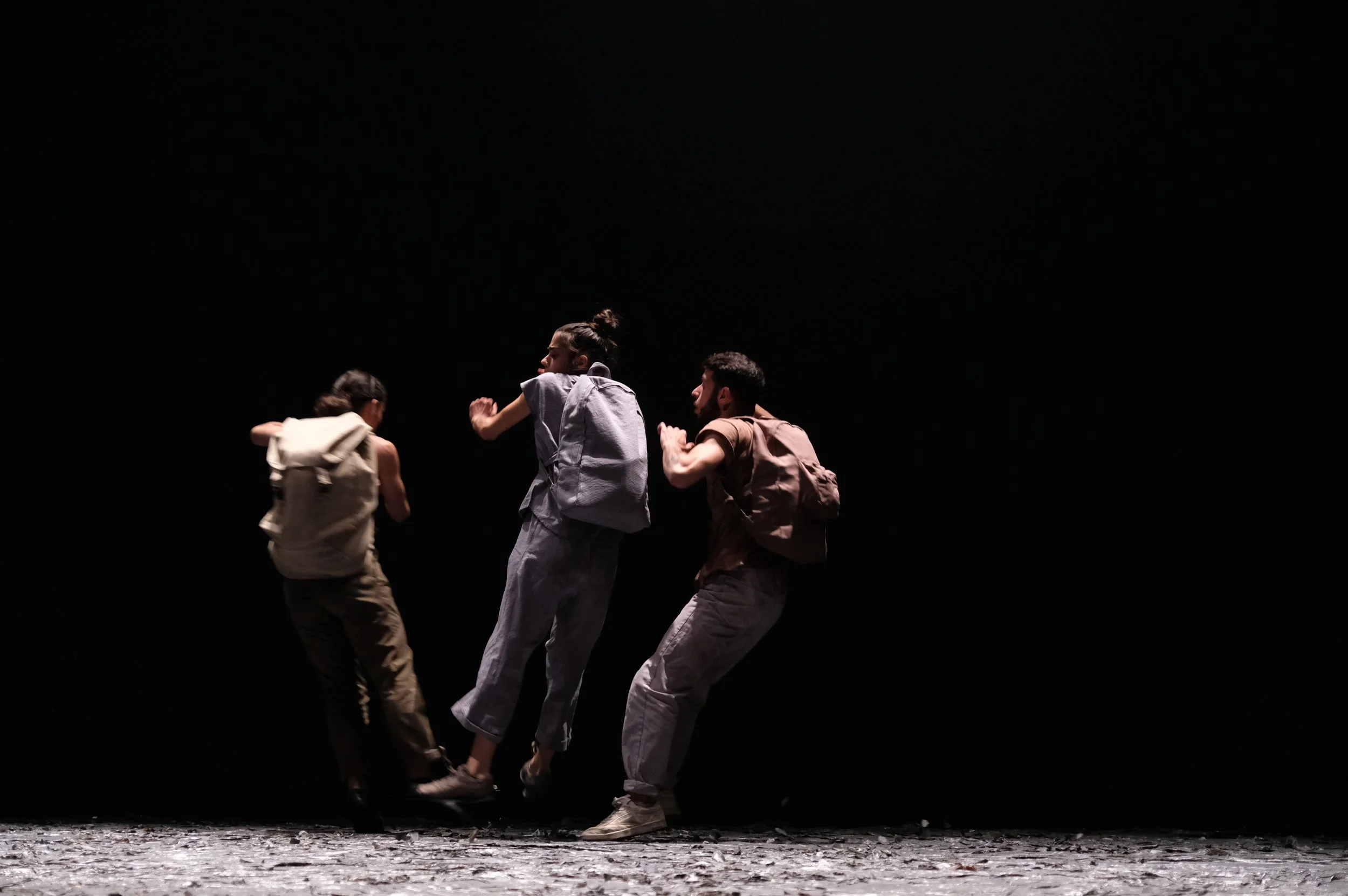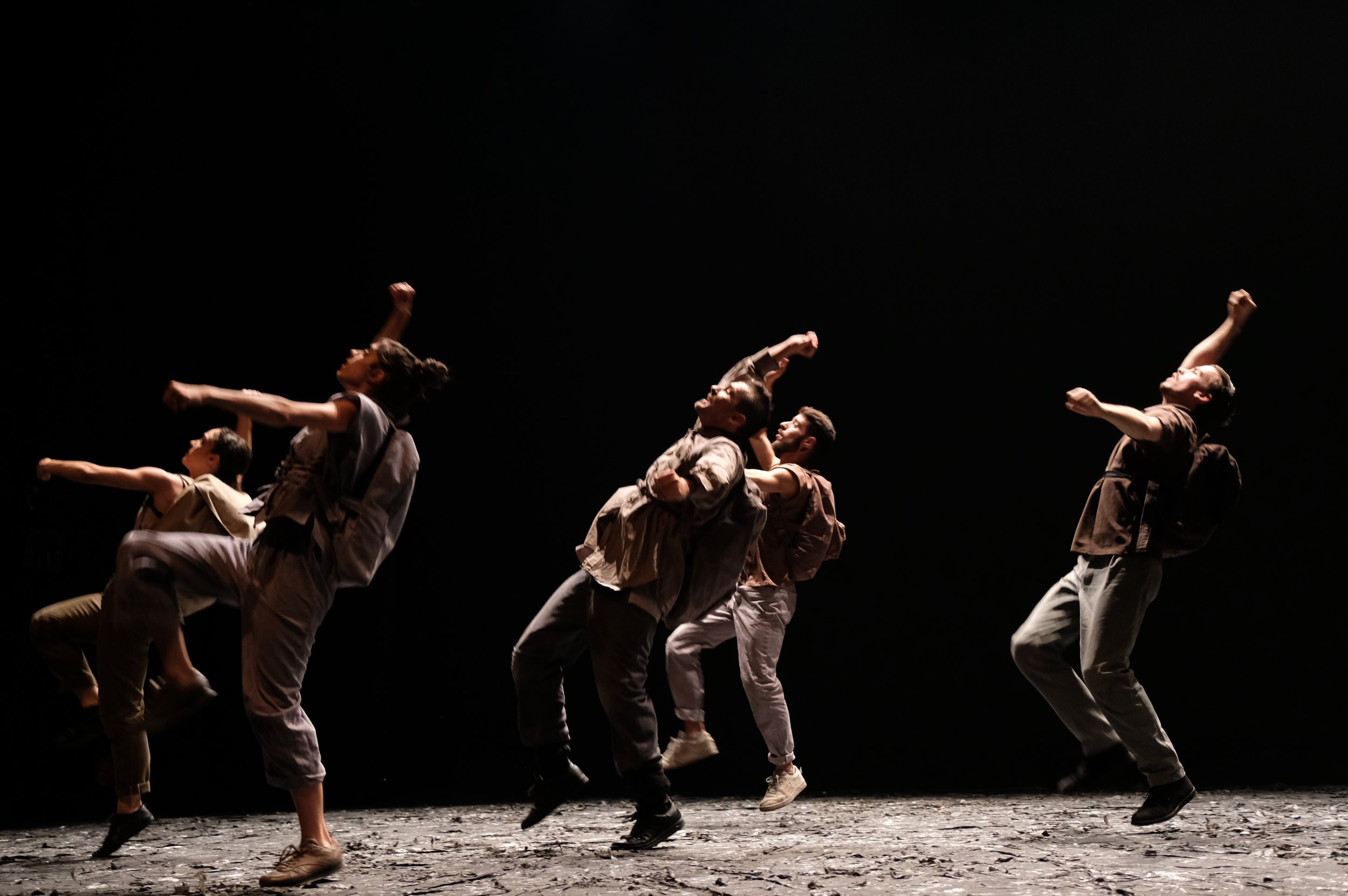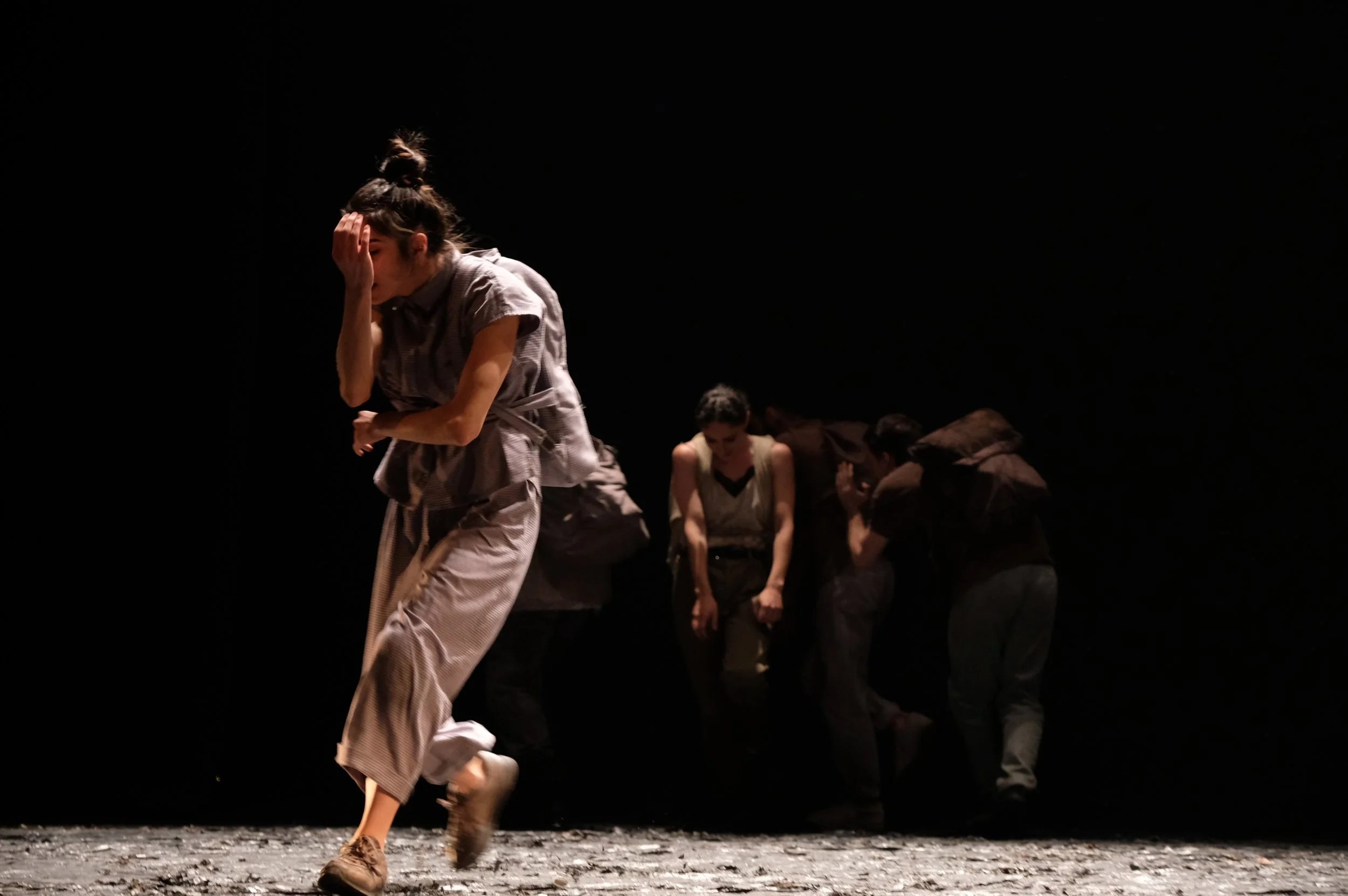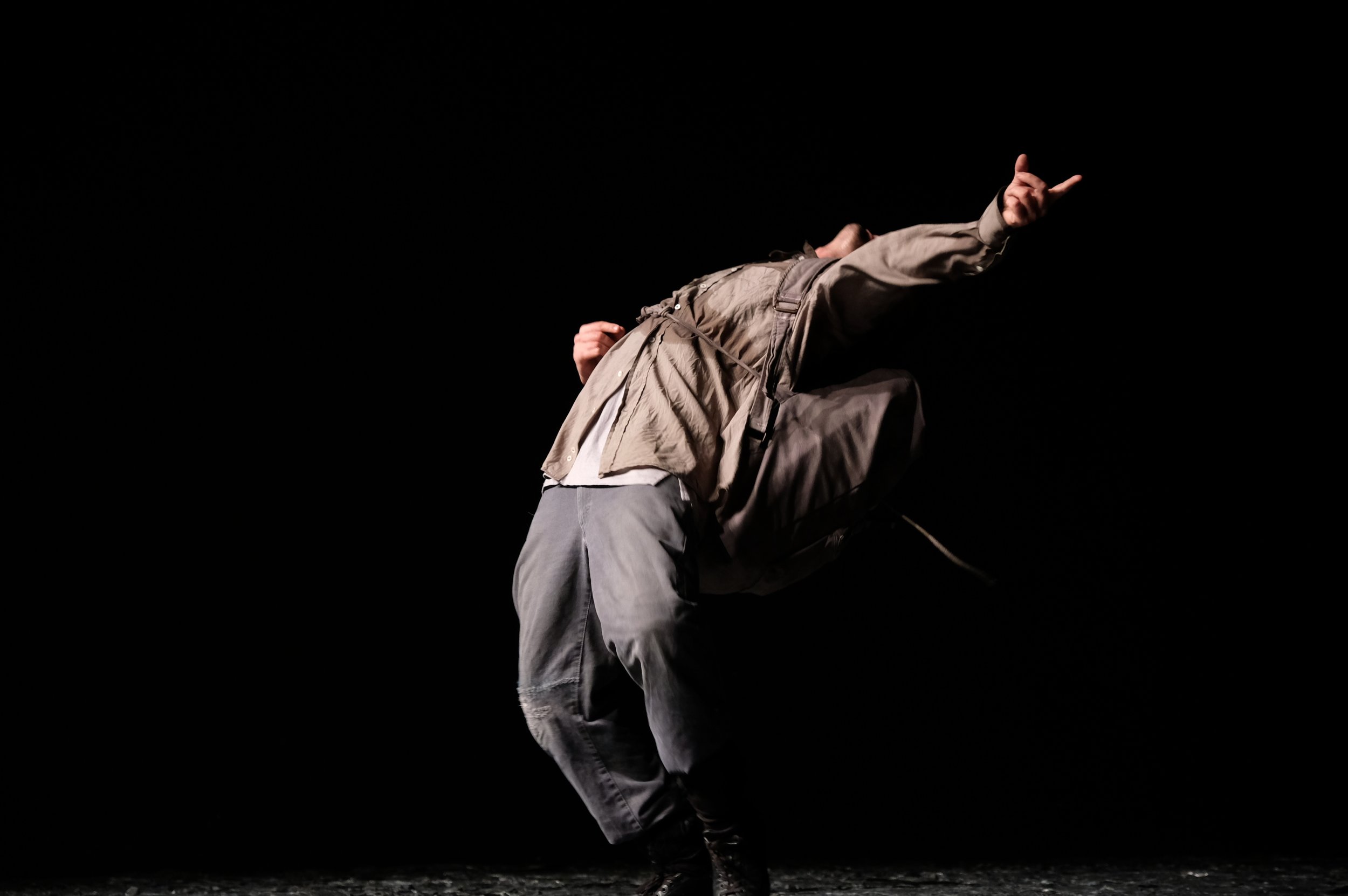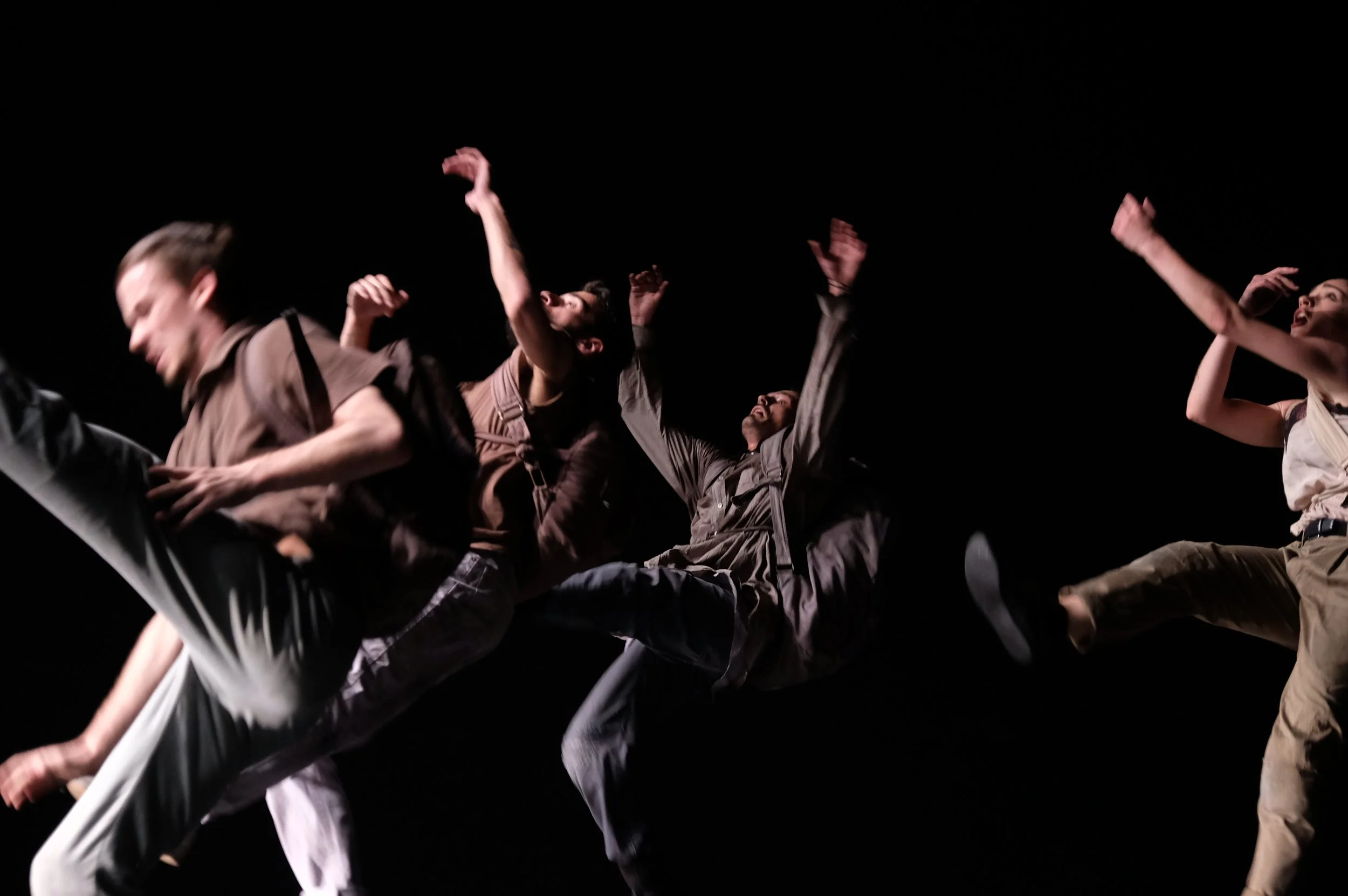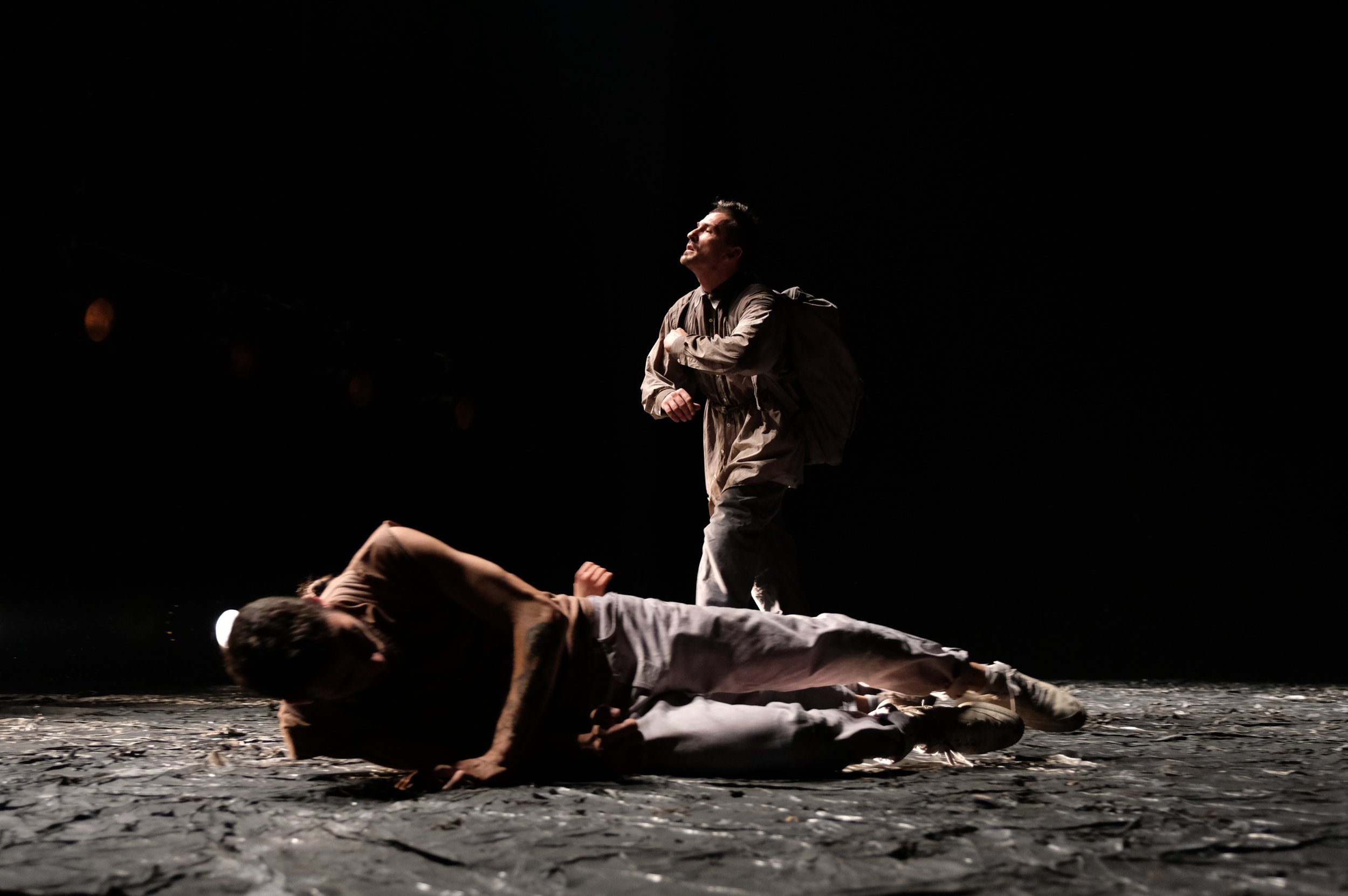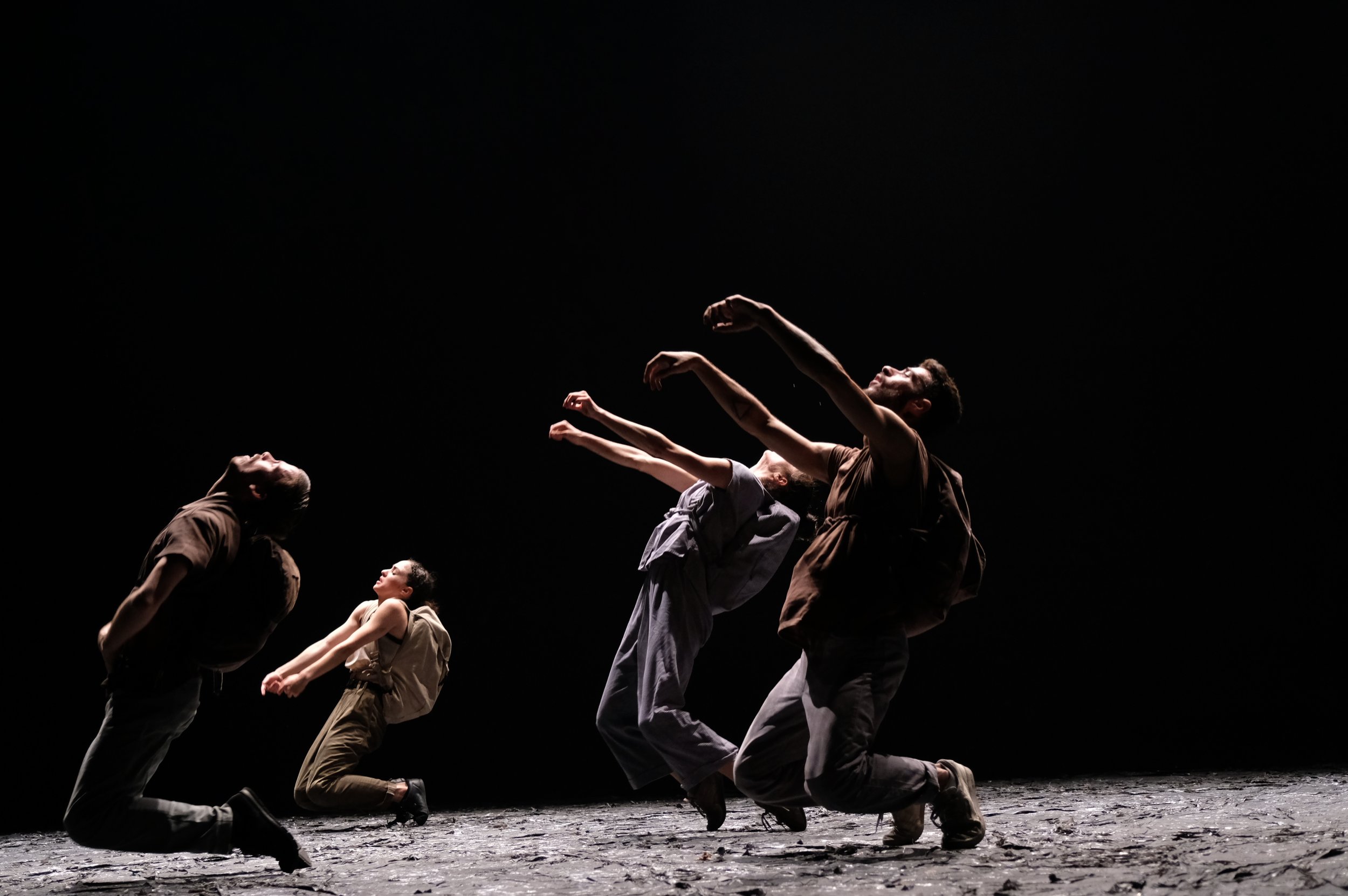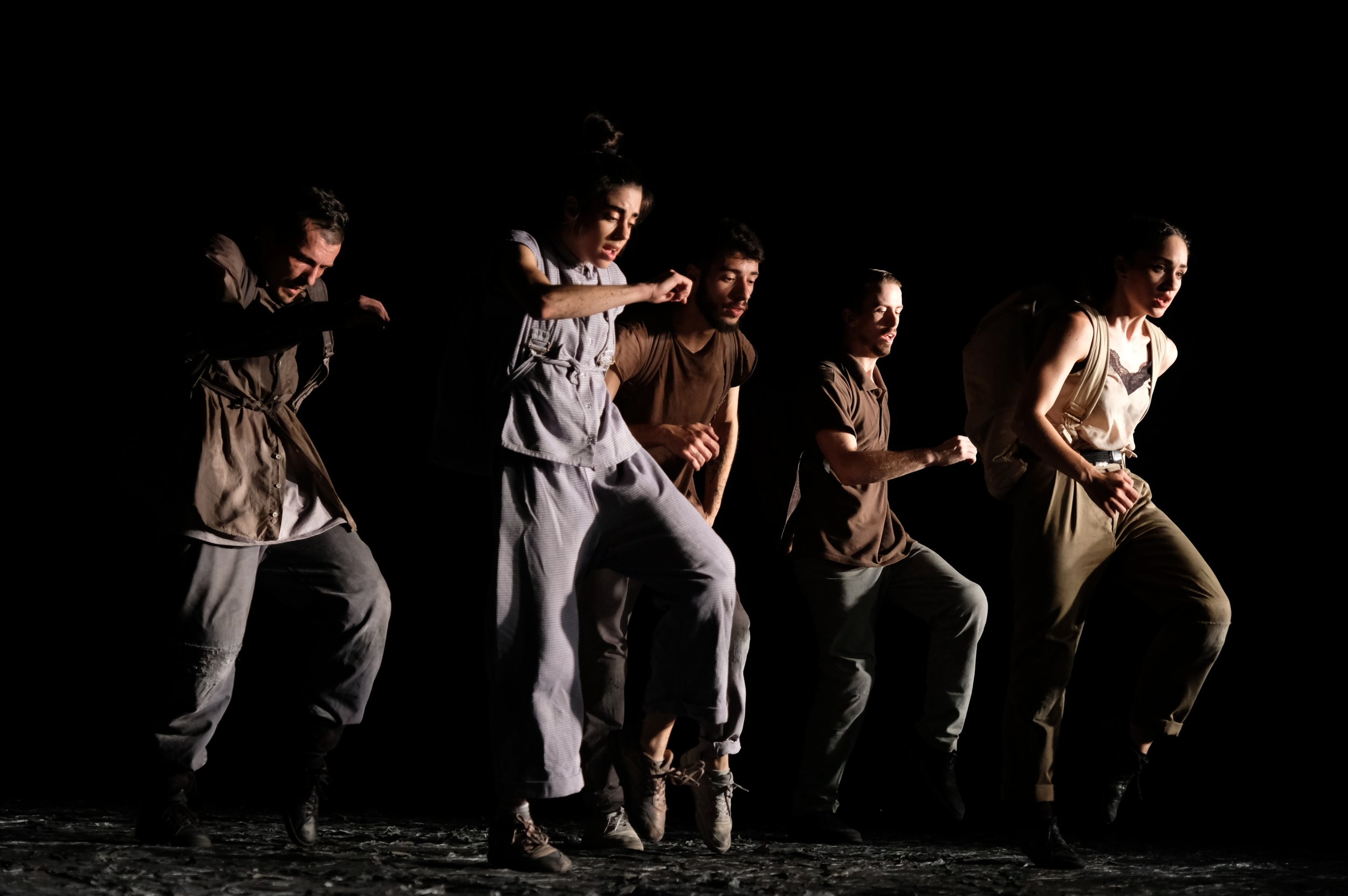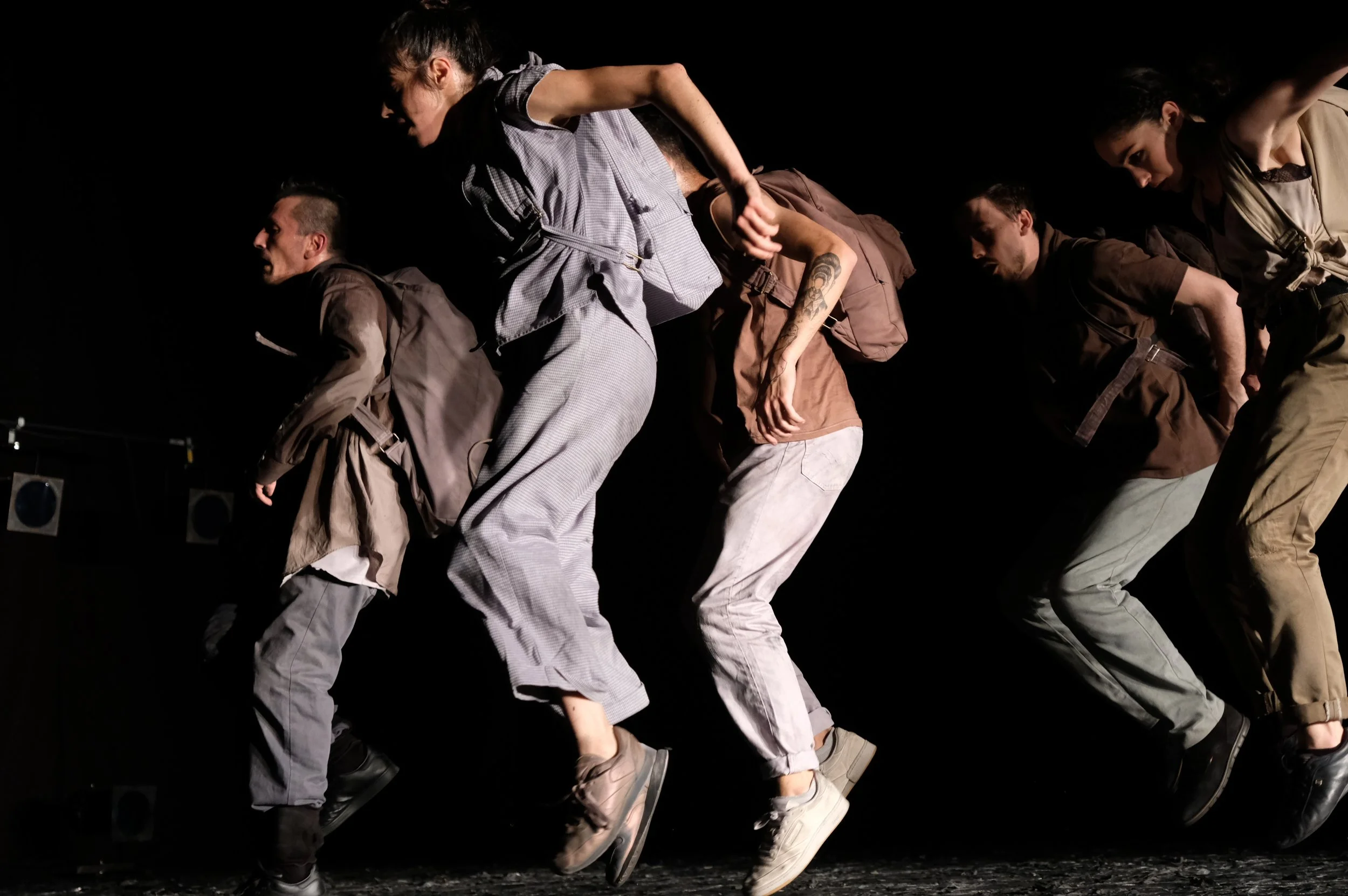“We did not lose because we deserved it,
but because we managed to hearken
to the silence of our times.
And we were left “standing and alone amidst
the terrible wilderness of the crowd”*
to gaze upon the feats of our history”
Duration of the piece: 60 min.
Concept – Choreography: Patricia Apergi
Dramaturgy Consultant: Georgina Kakoudaki
Music: Giwrgos Poulios
Set Design: Dimitris Nasiakos
Costumes Design: Vasiliki Syrma
Lighting: Nikos Vlasopoulos
Assistant Choreographer: Dimitris Oikonomidis
Promo Material Design: Kallina Kyratsouli
Photography: Tassos Vrettos
Production: Aerites dance company
Production Manager: Rena Andreadaki
Performance – Creative Processing: Elias Hadjigeorgiou,
Eva Georgitsopoulou, Alex Gotch, Lamprini Gkolia, Raphael Boumpoucheropoulos
The work has been subsidized by the
Greek Ministry of Culture & Sports
This new work by Patricia Apergi explores, as her previous ones, the emergence of the historical subject within specific socio-political processes. Although its content is shaped by Apergi’s Greek origins and experience it also draws from, and responds to, every kind of societal crisis. As the artist herself asks:
Apergi and her team researched the meaning and ways of mourning, as expressed by the chorus in ancient Greek tragedy in order to develop the specific choreography and achieve a transfer of the mournful dance-performance / state / representation to the contemporary reality of citizens being confronted with fear and defeat. Mourning together is, in fact, a radical confrontation of the phenomenon of loss. By occupying the space of loss we master the art of consolation and gain the wisdom of collective recovery and change.
Titled Polittes, with a twisted spelling that playfully alludes to ‘citizens defeated’, Apergi’s work has been inspired by the thought of contemporary writers and historians (such as Edouard Said, Dimitris Dimitriadis, Edouard Glissant, Kostis Karpozilos) and wishes to address the profound changes that have occurred in social and political living, the violation of rights of citizenship under the stress of the refugee crisis, and the rise of conservative and anti-minority politics.
The various lessons inherited through Greek myth and drama are being reconfigured through contemporary political poetics; the kind that wishes to recognize the needs and woes of emerging societies, where class systems are dislocated, gender-based identities shift, and singularities budge under heavy psychological and body strains.
In those, yet-to-be-identified, societies, world citizens hear the last sounds of things familiar and learn how to accept the organic, fertilizing presence of chaos. They are confronted with an urgent demand: to invent new sounds, new images and other languages in order to describe the reality that is coming.
“How does it feel to be a citizen
of a country that is ‘losing’?”
“Which is the most difficult to face:
anger, fear or defeat?”
“What is of most value: the fight or its outcome?”
“Can one emerge as a hero from a failure?
Who are the citizens to be praised today?”
* M. Anagnostakis



